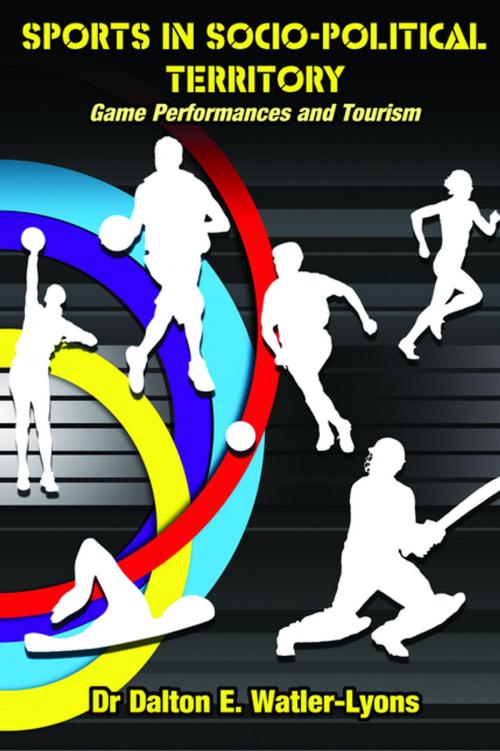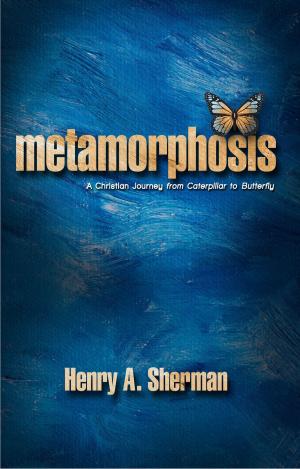| Author: | Dalton E. Watler-Lyons | ISBN: | 9780986144448 |
| Publisher: | Whitaker House | Publication: | April 1, 2015 |
| Imprint: | CLM Publishing | Language: | English |
| Author: | Dalton E. Watler-Lyons |
| ISBN: | 9780986144448 |
| Publisher: | Whitaker House |
| Publication: | April 1, 2015 |
| Imprint: | CLM Publishing |
| Language: | English |
Sports in Socio-Political Territory looks at the emerging recreation in this region. In the modern world, we can easily understand that children, young people, adults, and senior citizens who take part in sports activities do so to experience a feeling of belonging, engage in social interaction, compete, share with fans, appear better physically, relieve stress, enjoy better mental health, and/or play without caring about the results; of the physical activities available for recreational purposes, sports are preferred. In order to understand the aforementioned, one only has to recognize the number of countries that participate in the games organized by various international sporting federations. Sports have undergone an indescribable boom, but how they were initiated, developed, and established and how some sports have gained more acceptance than others in territories that are subordinate to a greater state, are the main reasons for this study. The Cayman Islands are the subject of our study, which is why we ask ourselves how sports emerged and why communities chose an accepted, determined sport over other forms of recreation. The questions are valid and deserve attention because such answers will bring us closer to understanding the social, touristic, educational, economic, and sporting implications within communities, sports associations, and the private sector. Based on the above, one tries to understand, among other things, how sports merged with and transcended humanity with respect to ancient civilizations and through to British rule. England as an empire extended its control and power to other territories, establishing colonies that, in one way or another, captured its cultural matrices (recreation, dance, games, sports, etc.) and that, in turn, were more emphasized in some countries than in others to the point of becoming part of the socio-cultural patterns of the colonized country. With the use of relevant social sciences, this study attempts to respond to the aforementioned with the objective of discovering those activities practiced by the English. It also looks at the process of acculturation in the plantations as transmitted to the marginalized subject/colonized communities. This method permits us to discover, compile, and study information to provide valid answers to what was previously unknown. This body of knowledge attempts to serve present and future generations in understanding the significance and cultural development of what is known today as sports in the Cayman Islands.
Sports in Socio-Political Territory looks at the emerging recreation in this region. In the modern world, we can easily understand that children, young people, adults, and senior citizens who take part in sports activities do so to experience a feeling of belonging, engage in social interaction, compete, share with fans, appear better physically, relieve stress, enjoy better mental health, and/or play without caring about the results; of the physical activities available for recreational purposes, sports are preferred. In order to understand the aforementioned, one only has to recognize the number of countries that participate in the games organized by various international sporting federations. Sports have undergone an indescribable boom, but how they were initiated, developed, and established and how some sports have gained more acceptance than others in territories that are subordinate to a greater state, are the main reasons for this study. The Cayman Islands are the subject of our study, which is why we ask ourselves how sports emerged and why communities chose an accepted, determined sport over other forms of recreation. The questions are valid and deserve attention because such answers will bring us closer to understanding the social, touristic, educational, economic, and sporting implications within communities, sports associations, and the private sector. Based on the above, one tries to understand, among other things, how sports merged with and transcended humanity with respect to ancient civilizations and through to British rule. England as an empire extended its control and power to other territories, establishing colonies that, in one way or another, captured its cultural matrices (recreation, dance, games, sports, etc.) and that, in turn, were more emphasized in some countries than in others to the point of becoming part of the socio-cultural patterns of the colonized country. With the use of relevant social sciences, this study attempts to respond to the aforementioned with the objective of discovering those activities practiced by the English. It also looks at the process of acculturation in the plantations as transmitted to the marginalized subject/colonized communities. This method permits us to discover, compile, and study information to provide valid answers to what was previously unknown. This body of knowledge attempts to serve present and future generations in understanding the significance and cultural development of what is known today as sports in the Cayman Islands.















